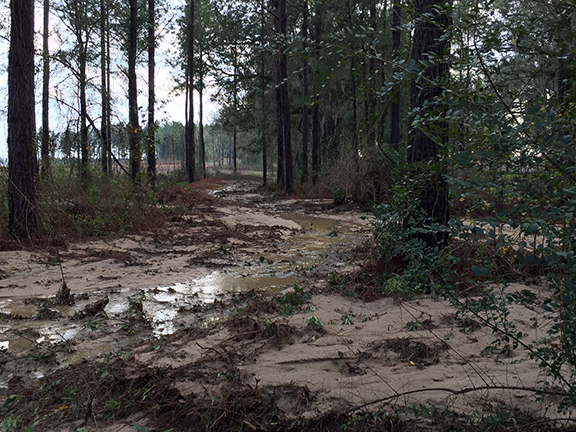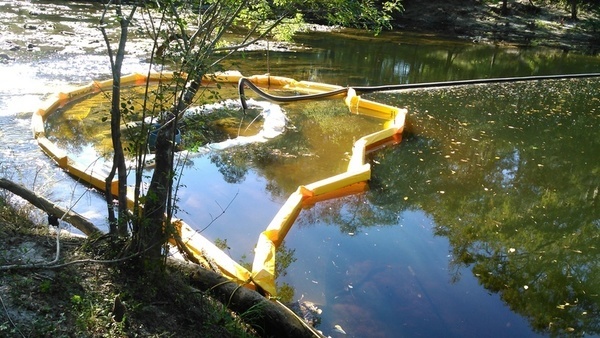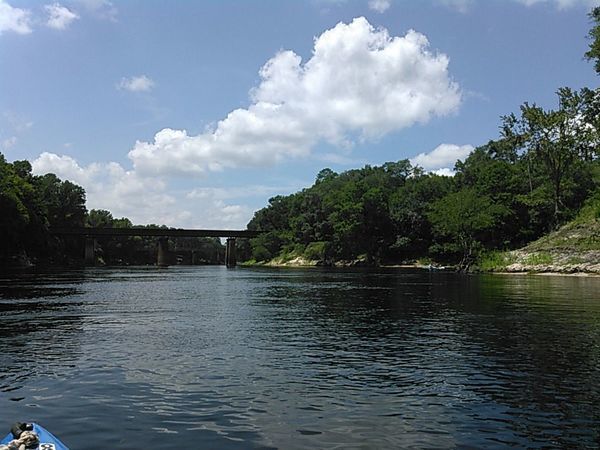Update 2023-06-23: The Mermaid says sign the petition, Rights to Clean Water for Florida 2023-03-26.
Florida registered voters, please sign the petition to get
a state constitutional amendment for Rights to Clean and Healthy Waters
on the ballot:
https://www.floridarighttocleanwater.org
![[The Mermaid says sign the RTCW petition]](jpg/many-13.jpg)
The Mermaid says sign the RTCW petition
Update 2023-06-12: Children’s climate change lawsuit against the state of Montana starts today,
The children’s lawsuit against the State of Montana on climate policy starts today, June 12, 2023.
The plaintiffs have already won part of it without a trial: the state legislature repealed a law that promoted fossil fuels.
Update 2023-06-02: Judge agrees with voters: Titusville Right to Clean Water Charter amendment is legal 2023-05-22.
In a big win for Right to Clean Water (RTCW) in Florida, a judge sided with the voters who passed a Titusville charter amendment. Addressing every point of a Motion for Summary Judgement for Declaratory Judgment filed by the City of Titusville, the judge denied that motion and granted the request by Speak Up Titusville, Inc. to require the City to certify the Amendment.
Update 2023-04-01: Florida Right to Hunt and Fish breezing through legislature towards 2024 ballot 2023-03-27.
Georgia has it, among 23 states, including all states in the southeast, except for Florida.
Looks like it’s coming to Florida: a state constitutional amendment for a Right to Hunt and Fish.
[…]
And what good is a Right to Hunt and Fish without clean water for the fish and wildlife? Floridians, please sign the petition for Right to Clean Water, also intended for the 2024 ballot.
https://www.floridarighttocleanwater.org/
Update 2023-01-05: New York landfill court case illustrates right to clean water 2022-12-30.
Update 2022-12-07: Video: Unite for Clean Water Kickoff 2022-12-01.
Update 2022-11-23: Right to Clean Water policy by Georgia Water Coalition 2022-11-09.
Update 2022-11-10: Florida Right to Clean Water: get petition signatures for court review 2022-11-10.
Update 2022-09-10: Georgia National Hunting and Fishing Day at Paradise PFA 2022-09-24.
Update 2022-06-14: Videos: Right to Clean Water, Waterkeeper Alliance Conference 2022-06-11.
Update 2022-05-01: Floridians registered to vote go here to sign the RTCW petition.
Update 2022-04-24: Videos: Florida Right to Clean Water @ Poe Springs Park 2022-04-21.
Update 2022-04-24: Videos: Constitutional Right to Clean Water for Georgia, WWALS Webinar 2022-04-19
Update 2021-11-03: New York State Environmental Rights Amendment passed by 70.12%.
Update 2021-06-15: Right to Clean Water, and four more Florida ballot initiatives 2021-05-20.
Update 2021-02: New York State Environmental Rights Amendment for November 2021 ballot: “Each person shall have a right to clean air and water, and a healthful environment.”
See also the 1972 Montana precedent.
Update 2021-02-24: The regulatory trap at SRWMD: 30 speakers, yet unanimous Nestlé permit 2021-02-23.
Update 2021-01-31: Green Amendment Passes in the New York State Legislature.
Update 2021-01-22: Orange County, Florida (home of Orlando) passed a Bill of Rights for Nature, becoming the most populous local government area in the U.S. to do so; see below.
Does it seem most of the agencies, laws, and rules are rigged for big corporations and against local private property rights, against local fishing, swimming, boating, and hunting, and against organizations like Riverkeepers and Waterkeepers?
![[Sabal Trail fracked methane pipeline, titanium mine too near Okefenokee Swamp, Suwannee River Basin]](jpg/many-15.jpg)
Sabal Trail fracked methane pipeline, titanium mine too near Okefenokee Swamp, Suwannee River Basin.
See also WWALS map of all public landings in the Suwannee River Basin.
One approach to change that is a Bill of Rights for Nature (BOR), to change the legal structure so rivers, swamps, aquifers, lakes, etc. presumptively have rights that corporations have to prove they are not violating. There are at least three ways to do this: personhood for a waterbody, a Bill of Rights for Nature spelling out specific rights such as to exist and to flow unpolluted, or human rights to clean air and water, commonly known as a Green Amendment.
Examples
First, here are some examples of why rights of nature would be useful.
Example: a titanium strip mine proposed too near the Okefenokee Swamp
For example, Suwannee Riverkeeper is helping oppose a company that wants to mine titanium within three miles of the Okefenokee Swamp, which is the headwaters of the Suwannee and St. Mary’s Rivers, and above the Floridan Aquifer, from which all of south Georgia and north Florida drinks.
![[Tribal Grounds west along GA 94 to TPM equipment, 12:38:38, 30.5257540, -82.0411100]](jpg/triba-grounds-to-tpm-equipment.jpg)
Tribal Grounds west along GA 94 to TPM equipment, 12:38:38.
Photo:
John S. Quarterman for WWALS, on Southwings flight, pilot Allen Nodorft, 2019-10-05.
We shouldn’t have to get
more than 20,000 60,000 comments sent to the U.S.
Army Corps of Engineers pointing out that the Okefenokee National
Wildlife Refuge contributes far more jobs (700+) and other economic
benefits (more than $60 million/year) to the region and to Florida
and Georgia than even the wildest promises of the miners (150-200 as
in the application? 300? 350, as they told some reporters?), and the mine would risk all that, including boating, fishing, and birding in the Swamp and hunting around it. We
should be able to point to the rights of the Swamp, Rivers, and
Aquifer, and the miners should have to prove beyond a shadow a doubt
that they would not violate them.
Update 2021-01-22: And then the Army Corps abdicated oversight in late 2020, leaving only the State of Georgia standing between the miners and Swamp with their five permit applications to the Georgia Department of Environmental Protection.
![[Twin Pines Minerals mine land, maps, Cherokee of Georgia Tribal Grounds]](jpg/many-16.jpg)
Twin Pines Minerals mine land, maps, Cherokee of Georgia Tribal Grounds, photographs by Southwings pilot Chris Carmel on a flight for Suwannee Riverkeeper, 2021-01-10.
You can help, by asking the Georgia Governor and other elected and appointed officials to reject or at least thoroughly review those permit applications.
Example: the Sabal Trail fracked methane pipeline
When the Georgia House of Representatives overwhelmingly refused to grant easements for the Sabal Trail fracked methane pipeline to drill under Georgia rivers, that should have stopped the pipeline.

Soil eroded off farmer Randy Dowdy’s prize-winning soybean field into nearby wetlands because of Sabal Trail fracked methane pipeline.
Photo: Kevin Dowdy in S.W Georgia Farm Devastated From Pipeline Construction, AgWeb, 14 March 2017.
Instead, the pipeline company sued in county superior courts and got the easements anyway, because they had federal eminent domain from the Federal Energy Regulatory Commission (FERC).

View from the south bank of Sabal Trail fracked methane pipeline turbidity curtains and pipe, collecting drilling fluid frac-out from pilot hole, taken from the north bank of the Withlacoochee River, about 2000 feet upstream from the US 84 bridge.
Photo: John S. Quarterman, October 22nd 2016.
Waterkeeper Alliance already two years ago passed a resolution to reform FERC, possibly including getting private eminent domain out of the Natural Gas Act. That still needs to be done, and a movement for a Bill of Rights for Nature could help with that, too.
The Suwannee and Santa Fe Rivers are Outstanding Waters of Florida, which is supposed to mean anybody proposing to impinge upon them has to prove no harm, but the Florida Department of Environmental Protection claimed that was proven, despite evidence to the contrary. One year later, what our expert witness said could happen did happen on a tributary of the Suwannee.
A Bill of Rights for Nature would be stronger, and might have stopped that pipeline, and might make the opposition to the titanium mine much easier.
Example: Nestlé permit for plastic-bottled water withdrawals at Ginnie Springs, Santa Fe River, Florida
Two years of protests, lawsuits, and hundreds of thousands of comments against, and the final meeting was run by attorneys. The Suwannee River Water Management District (SRWMD) board could have voted to deny anyway, but they unanimously approved the permit as fast as the roll could be called. See The regulatory trap at SRWMD: 30 speakers, yet unanimous Nestlé permit 2021-02-23.
In more regulatory theater, the attorneys and the board promised recovery rulemaking and oversight, like that’s ever worked for water withdrawals in Florida.
![[Mermaid, Suwannee Riverkeeper, OSFR, Regulatory Fallacy, Charles Keith, Attorneys, Motion to Permit, unanimous SRWMD Board]](jpg/many-17.jpg)
Mermaid, Suwannee Riverkeeper, OSFR, Regulatory Fallacy, Charles Keith, Attorneys, Motion to Permit, unanimous SRWMD Board
It’s no use complaining about the SRWMD board members, or even replacing the governor who appointed them, without changing the regulatory system that produces these results over and over. Rights of Nature are needed.
Method 1: Personhood for a Waterbody
You may have heard Toledo, Ohio, passed a Bill of Rights for Lake Erie.
Sure, there is legal chicanery going on to try to nullify it. That means polluters are afraid of it.
Or you may have heard of the multiple successes in Latin America, India, New Zealand, and elsewhere.
Involved in almost all of them is CELDF, the Community Environmental Legal Defense Fund. CELDF is has copious educational materials on their website, with pointers to where this has worked. They are also willing to send speakers to local meetings.
Method 2: A Bill of Rights for Nature
In the Suwannee River Basin, right now [in early 2020] a group called Santa Fe Bill of Rights (SaFEBOR) is rustling up signatures to get a referendum on the November ballot to change the corporate charter of Alachua County, Florida, to add a Bill of Rights for the Santa Fe River. Alachua County is home of Gainesville, Florida and the University of Florida; the Santa Fe River is its northern and western border.
This SaFEBOR effort is intended to be a start for BOR for all of Florida and beyond. Suwannee Riverkeeper supports it, and is cogitating how to do something similar for all our 35 counties in Florida and Georgia, and maybe for both states. Yes, we know this will be uphill and may take years. But we like to be proactive, rather than just reacting.
Merely trying to pass a BOR generates positive support. Already, SaFEBOR has the Gainesville Sun, a large regional newspaper, editorializing to spread this movement to every election.
Update 2020-02-09: Videos: John Moran, Doug Shields, Chuck O’Neal @ FL RoNCon 2020-02-08. WWALS video of David Moritz talking about SaFEBOR 2020-02-08.
Update 2020-02-19: Waterkeepers Florida for home rule, against state pre-emption of environmental ordinances 2020-02-14.
Update 2021-01-22: SAFEBOR did not get enough petition signatures to get on the ballot, but another one did. Orange County, Florida (home of Orlando), passed a Rights of Nature Charter amendment by 89% in November 2020, becoming the largest local government population in the U.S. to do so. A county commission candidate running on Rights of Nature also won with 57% of the vote. Here is what was on the ballot and what changes in the county charter.
The Florida Rights of Nature Network, formed in February, 2020, was already suing the state against the self-proclaimed “Clean Waterways Act”, Florida SB 712, which was signed by the governor on June 30, 2020, still including a paragraph of pre-emption of local Bills of Rights of Nature, and still opposed by Waterkeepers Florida.
This approach is broader than just giving a river rights of personhood, because rivers and aquifers and many other waterbodies cover much more territory and affect far more things and people than the average person or even the average corporate person.
Method 3: A Green Amendment (human rights to clean air and water)
Suwannee Riverkeeper supports Delaware Riverkeeper Network’s movement for a Green Amendment like Pennsylvania already has. Pennsylvania has rights to clean air and water right next to freedom of speech in its Constitution, Article 1, Section 27:
The people have a right to clean air, pure water, and to the preservation of the natural, scenic, historic and esthetic values of the environment. Pennsylvania’s public natural resources are the common property of all the people, including generations yet to come. As trustee of these resources, the Commonwealth shall conserve and maintain them for the benefit of all the people.
A recent court case by Delaware Riverkeeper Network established that that section is self-enforcing. People can sue based on the Constitution alone: no further enabling legislation is required. We’re all for that. Clean air and water rights for people is opposite and complementary to rights for rivers and aquifers. And why not both?
We need something to get mass support. People who want to swim, boat, fish, and hunt often already realize their rivers are bigger than just them.
Update 2021-01-31: David Carlucci, New York State Senate, January 30, 2021, Green Amendment Passes in the New York State Legislature,
In order for the New York State Constitution to be amended, this bill must be passed again in next year’s legislative session, and then it must pass a statewide voter referendum.
Update 2021-01-22: Georgia passed a Right to Fish and Hunt Amendment constitutional amendment in 2006 by 81.1%. See Georgia Code Title 27, Game and Fish § 27-1-3:
(a) The General Assembly recognizes that hunting and fishing and the taking of wildlife are a valued part of the cultural heritage of the State of Georgia. The General Assembly further recognizes that such activities play an essential role in the state’s economy and in funding the state’s management programs for game and nongame species alike, and that such activities have also come to play an important and sometimes critical role in the biological management of certain natural communities within this state. In recognition of this cultural heritage and the tradition of stewardship it embodies, and of the important role that hunting and fishing and the taking of wildlife play in the state’s economy and in the preservation and management of the state’s natural communities, the General Assembly declares that Georgia citizens have the right to take fish and wildlife, subject to the laws and regulations adopted by the board for the public good and general welfare, which laws and regulations should be vigorously enforced. The General Assembly further declares that the state’s wildlife resources should be managed in accordance with sound principles of wildlife management, using all appropriate tools, including hunting, fishing, and the taking of wildlife.
(b) The ownership of, jurisdiction over, and control of all wildlife, as defined in this title, are declared to be in the State of Georgia, in its sovereign capacity, to be controlled, regulated, and disposed of in accordance with this title. Wildlife is held in trust by the state for the benefit of its citizens and shall not be reduced to private ownership except as specifically provided for in this title. All wildlife of the State of Georgia is declared to be within the custody of the department for purposes of management and regulation in accordance with this title. However, the State of Georgia, the department, and the board shall be immune from suit and shall not be liable for any damage to life, person, or property caused directly or indirectly by any wildlife.
That section of Georgia Code goes on to spell out protections for landowners, as well as authority for hunting seasons and other details.
There’s no hunting or fishing without clean air and water. A Bill of Rights for Nature could get the support of hunters and fishers. SaFEBOR is demonstrating it can get support from students and even business people: what fishing or tourism is left if a mine destroys the river?
Waterkeepers are everywhere, and are well-positioned to get Bills of Rights for Nature passed everywhere.

Suwannee River at Withlacoochee River Confluence
Photo: John S. Quarterman, 2015-08-15
For all these reasons, Suwannee Riverkeeper is asking Waterkeeper Alliance and individual Waterkeepers to consider joining the movement to pass Bills of Rights for Nature.
We ask everyone reading this to consider the same. Why should we have to prove a pipeline or mine is not going to damage our waters? Let’s reorganize the legal system so big corporations have to prove they will not infringe the Rights of Nature.
-jsq, John S. Quarterman, Suwannee RIVERKEEPER®
You can join this fun and work by becoming a WWALS member today!

![[RTCW, Poe Springs]](jpg/many-14.jpg)
![[Speakers, RTCW]](jpg/videos.jpg)